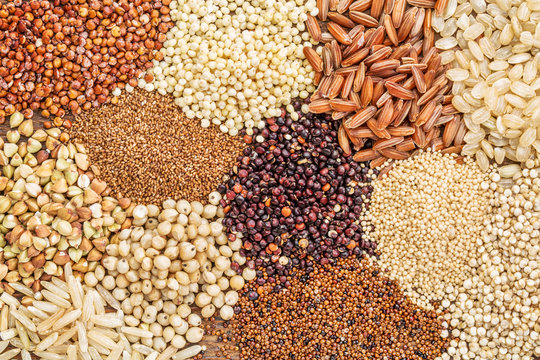commerical
Why Should I Switch to Organic Groceries?

Q: What’s the biggest health benefit of choosing organic?
A: Organic foods are free from harmful synthetic chemicals like pesticides, fertilizers, and growth hormones. Studies show that organic fruits and vegetables can have higher nutrient levels, like antioxidants and essential vitamins, leading to a healthier body and stronger immune system. Essentially, going organic means you're choosing fewer chemicals and more nutrients.
Q: How does organic food affect my environmental footprint?
A: Organic farming practices are far more eco-friendly. They reduce pollution by avoiding toxic pesticides and chemical fertilizers that can harm the environment. Organic farming promotes biodiversity, soil health, and water conservation—key factors in protecting ecosystems and combating climate change. By choosing organic, you’re directly supporting more sustainable farming methods that respect the environment.
Q: How is organic food different from conventional food in terms of chemicals?
A: Organic foods have fewer chemical residues. Unlike conventionally grown crops, organic produce is free from synthetic pesticides, herbicides, and artificial fertilizers. This means less exposure to potentially harmful chemicals, which have been linked to everything from hormonal imbalances to cancer. Choosing organic lowers your chemical intake in the long run.
Q: Does organic farming treat animals better than conventional farming?
A: Yes! Organic farming supports more humane treatment of animals. Organic livestock is raised without unnecessary antibiotics or hormones and is typically given more space to roam, which means healthier and more ethically treated animals. This is a significant step toward reducing animal cruelty in agriculture.
Q: Does buying organic help local economies?
A: Absolutely! Organic farming often relies on local markets, like farmers’ markets or CSA programs, meaning the money you spend goes directly to local farmers and communities. Organic products support small-scale farming, which has a much more positive impact on local economies than large industrial farms.
Q: Can organic food taste better than conventional food?
A: Many people find that organic food tastes better! Organic produce is often fresher and harvested at its peak ripeness, which means it has richer, more natural flavors. Because organic farming avoids synthetic chemicals, the flavors of the fruits and vegetables are often more vibrant and robust.
Q: How does organic food help with the fight against antibiotic resistance?
A: Organic farming does not use antibiotics in livestock feed. Overuse of antibiotics in conventional farming has led to antibiotic-resistant bacteria, which pose a significant health threat. By choosing organic, you’re supporting farming practices that help prevent the rise of antibiotic-resistant diseases.
Q: How does organic food protect water quality?
A: Organic farming practices reduce water contamination by avoiding chemical runoff, which can pollute rivers, lakes, and groundwater. Organic farming methods also use natural pest control and composting, which help maintain clean, healthy water systems. This ensures that our water remains safe for drinking and wildlife.
Q: How can organic food help preserve biodiversity?
A: Organic farming promotes diverse ecosystems by avoiding monoculture farming, which depletes soil and limits plant and animal variety. Organic practices like crop rotation encourage biodiversity and healthier ecosystems, providing safe habitats for beneficial insects, pollinators, and wildlife.
Q: How can going organic save me money in the long run?
A: While organic food can cost more upfront, it’s an investment in long-term health. By avoiding pesticide-related health issues and chronic diseases linked to poor diets, organic choices could save you medical expenses in the future. Additionally, organic produce is often fresher and lasts longer, reducing food waste.
Q: Why are GMOs not allowed in organic farming?
A: Organic farming strictly prohibits GMOs (genetically modified organisms). This means that organic crops have not been genetically engineered to resist pests or herbicides. For those who are concerned about the long-term effects of GMOs, organic food provides a safer alternative with fewer risks.
Q: How do organic farming practices contribute to the fight against climate change?
A: Organic farming reduces carbon emissions by using fewer chemical inputs, relying more on sustainable practices like crop rotation and natural fertilizers. These practices help store carbon in the soil, making organic farming part of the solution to mitigate climate change by improving soil health and reducing greenhouse gas emissions.
Q: What are the hidden costs of not buying organic?
A: While organic groceries might seem expensive, not buying them may come with hidden costs—like long-term health risks from pesticides or environmental degradation. Supporting organic farming ensures you contribute to a food system that’s better for your health and the planet, making it a worthwhile investment, not just financially, but also in terms of social and environmental benefits.
Is Organic Worth the Switch?
Absolutely!
Switching to organic groceries is more than just a dietary change; it’s an investment in your health, the planet, and future generations. From avoiding harmful chemicals to supporting sustainable farming, the benefits of going organic go far beyond your shopping cart. By making conscious choices to purchase organic, you’re contributing to a cleaner environment, supporting ethical practices, and fostering a more sustainable food system—making it a win for both you and the world around you.





 Dairy products
Dairy products
 Dry Goods and Essentials
Dry Goods and Essentials
 Fruits and Vegetables
Fruits and Vegetables
 Personal Care
Personal Care
 Healthy Drinks
Healthy Drinks
 Pooja essential
Pooja essential
 Traditional Utensils
Traditional Utensils
 Books
Books






